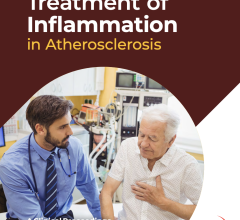
Harlan M. Krumholz, MD, SM, FACC
June 26, 2024 — The first issue of JACC, the flagship journal of the American College of Cardiology, under new Editor-in-Chief Harlan M. Krumholz, MD, SM, FACC, published this week, ushering in a new era of one of the world’s leading scholarly journals.
“I envision JACC, with all its strengths, as a transformative platform for building community, elevating strong science, influencing clinical practice, supporting career development, and improving patient outcomes.” Krumholz said in his Editor’s Page. “JACC and its group of journals can play a pivotal role in serving our community and shaping the future.”
Under his editorship, JACC will be guided by its mission to publish high-quality clinically actionable science that advances cardiovascular health through an approach that emphasizes author-centricity, strategic partnerships and impact.
“We are chasing impact, not impact factor,” Krumholz said. “Our North Star will always be patients and the public, seeking benefits for them, consistent with the ACC mission and aligned with the ACC vision.”
JACC is embracing an author-centric approach that encourages submission of the best science through a rapid and fair evaluation process. Manuscripts will be reviewed quickly, and authors will know the decision before they have to proceed with formatting and revisions, greatly reducing requirements for authors and establishing a partnership with editors, reviewers, and authors.
Partnerships with other leading journals and organizations are being established to create new submission pathways and coordinate editorial processes across journals. JACC recently announced a collaboration with The Lancet to share resources and expertise in publishing cardiovascular health research. JACC is also integrating with JACC: Clinical Electrophysiology to leverage that team's deep expertise and collaborating with JACC: Case Reports to highlight case studies and show commitment to frontline clinicians.
Through working more closely with authors and through collaborations, JACC wants to make an impact by ensuring its content makes a difference in the world.
“We recognize our deep responsibility to the cardiovascular community and seek to be worthy of our community’s trust,” Krumholz said. “Together, we can ensure medicine’s next chapter is the best yet, with ever-greater tangible benefits for patients and the public.”
Papers in the issue include:
- “Lessons for Cardiovascular Clinical Investigators: the Tumultuous 2500-Year Journey of Physicians Who Ignited Our Fire” – A history of major advances in medicine that were launched as a result of unconventional thinking by rebellious individuals.
- “Transforming Cardiovascular Care with Artificial Intelligence: From Discovery to Practice: JACC State-of-the-Art Review” – A summary of how technology powered by AI is defining new frontiers in cardiovascular care.
- “The FDA and the Cardiovascular Community,” – A commentary from Haider J. Warraich, MD, Food and Drug Administration senior advisor for chronic disease, and FDA Commissioner Robert M. Califf, MD, on which areas of focused collaboration between the FDA and cardiovascular community could lead to better CV health for individuals and the public.
For more information: www.acc.org


 February 04, 2026
February 04, 2026 









